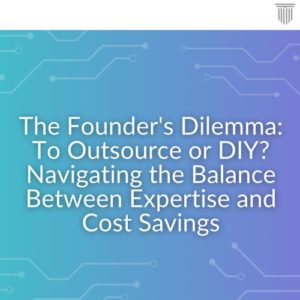The life sciences industry remains challenging for investors and entrepreneurs alike. New funding sources are emerging and an increasing number of VCs and debt providers specializing in life sciences are now active in the Canadian market. Nevertheless, getting funding for your company remains a challenge for most early-stage founders. We sat down with Robb Stoddard, President & CEO of Bio Alberta, an association that represents Alberta’s vibrant and diverse life sciences industry, to help you sort through government funding and select which partners are right for your growth strategy.
1. First, can you tell us about your experience in the Life Sciences, Pharmaceutical and Healthcare industries?
I’ve worked in Pharmaceutical and Life Sciences for most of my career, and with health and tech start-ups for much of the last 17 years, helping SMEs with their business and sales strategies, stakeholder engagement, and attracting investment and support. I joined BioAlberta in 2018 to help connect those companies to BioAlberta’s support and advocacy network and develop sectors that will modernize Alberta’s economy.
2. This month, on Oct 21st, the Government of Canada announced is investing over $5.6 million in Ontario Genomics to help early-stage genomics and engineering biology research companies bring new products to market. Separately, many companies in the life sciences are moving their operations from Quebec to Ontario, due to lower employee costs, fewer language legislations and a dynamic Biotech hub which has developed in Atlantic Canada. What is Alberta’s position in terms of R&D and consulting for companies?
Alberta has always enjoyed a competitive tax jurisdiction and has brought in tools like the Innovation Employment Grant to replace the provincial SR&ED credit and Investment Tax Credit. Alberta has also invested in Life Sciences funds with Alberta Enterprise Corporation and established several world-class accelerators to drive commercialization in Alberta. Emerging companies also have access to excellent resources such as the Life Sciences Innovation Hub and BioHubX in Calgary, and facilities like W21C, GRITT at the Glenrose and CAMS at NAIT to test and validate technology and Institute of Health Economics (IHE) to validate the business strategy. These are important components of our innovation ecosystem.
3. What do you think are the biggest challenges that prevent promising start-ups from scaling up and moving from research to commercialization?
One of Alberta’s challenges is to attract investment from companies that are in the scale-up phase and looking for $10-30M investments to drive their products into production and to market.
"I’ve talked to many companies who want to stay in Alberta and help grow success in the ecosystem, but to attract the funds required are presented with offers that ultimately will move the company out of Alberta..”
Robb Stoddard Tweet
As a sector, we also need to understand that we are in a global competition for talent and dollars. Globally, Alberta is not well known outside of the energy sector, but that’s changing. It requires coordination and commitment from the provincial and municipal governments, economic development and innovation agencies, and associations like BioAlberta.
4. What is the role of Bio Alberta in supporting researchers that embark upon an exhaustive search for corporate or government financing?
BioAlberta was created by 40 biotech entrepreneurs in 1998, who wanted to create and foster a network they could use to support each other and grow, and that remains our mission today. We do that by connecting researchers and SMEs with the resources they need whether it’s government/agency support, investors like OKR, or supply chain components. We also support academics by connecting them with potential industry partners which can lead to prototype development or licensing opportunities. Finally, the network offers entrepreneurs a chance to engage mentors and coaches through connections as well as networking opportunities.
5. Can you share a piece of advice for life science founders looking for funding opportunities?
The biggest piece of advice I can offer is that you don’t have to do it alone. Use organizations like BioAlberta to connect with other founders and researchers to learn about success…and just as important, failures. Reach out and find advisors or mentors that will help guide and prepare you for fundraising. Funders see hundreds of brilliant ideas every year, you need to convince them that your SME has the business fundamentals and people that can take the product forward to generate ROI.
—-
Reach out to us at [email protected] for a chance to be featured in our interview series.
Disclaimer: Any views or opinions are not intended to malign any religion, ethnic group, club, organization, company, or individual. All content provided on this blog is for informational purposes only







